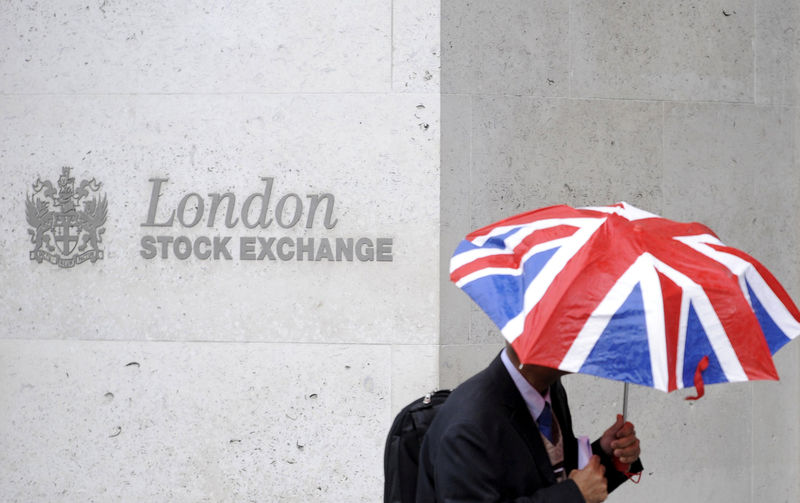By Alistair Smout and Kit Rees
LONDON (Reuters) - Britain's top share index fell on Thursday after the government lost a court case on how to trigger the process for leaving the European Union and the Bank of England shifted away from cutting interest rates further.
The blue chip FTSE 100 index (FTSE) was down 0.8 percent at 6,790.51 points by the close, lagging the broader European market which was broadly positive.
The mid cap FTSE 250 (FTMC), however, rose 0.7 percent.
That divergence saw the spread between mid cap performance and blue chips hit its widest since April 2009, before mid caps pared gains heading into the close.
The FTSE 100 fell after England's High Court ruled the UK government required parliament's approval to trigger the country's exit from the European Union.
This, and the news from the Bank of England, sent the pound higher. The FTSE 100 has high international exposure, with many firms earning dollars and reporting profits in sterling. That can cause shares to fall when the pound rises.
The mid caps, which are domestically focused, rallied along with the pound on hopes that any exit from the European Union would be made smoother by additional scrutiny from parliament.
"This decision has increased the uncertainty around the UK’s decision to leave the EU ... The FTSE 100 is lower, but this is largely a result of global equity weakness and the FTSE’s inverse correlation with the pound," Kathleen Brooks, Head of Research at City Index, said in a note.
"For the UK, uncertainty is good, because the market has convinced itself that Brexit is bad news for the UK’s future economic prospects."
Sterling then hit a 4-week high after the Bank of England scrapped plans to cut interest rates again and said they could move in either direction as it ramped up its forecasts for growth and inflation in 2017.
The FTSE 100 has rallied around 7 percent since Britons voted to leave the European Union in June, driven by gains among its international, dollar-earning firms that were boosted by a drop in sterling.
Mining companies were the biggest fallers, with Randgold Resources (L:RRS) dropping 6.2 percent after its update and pulling peer Fresnillo (L:FRES) down 4.3 percent.
In contrast, big domestic earners were among the top risers, with Royal Bank of Scotland (LON:RBS) up 6.1 percent.

British supermarket stocks were in demand, with Morrison (L:MRW) up around 1 percent after it reported a fourth consecutive quarter of underlying sales growth. Peer Sainsbury (L:SBRY) also rose, up 2.3 percent.